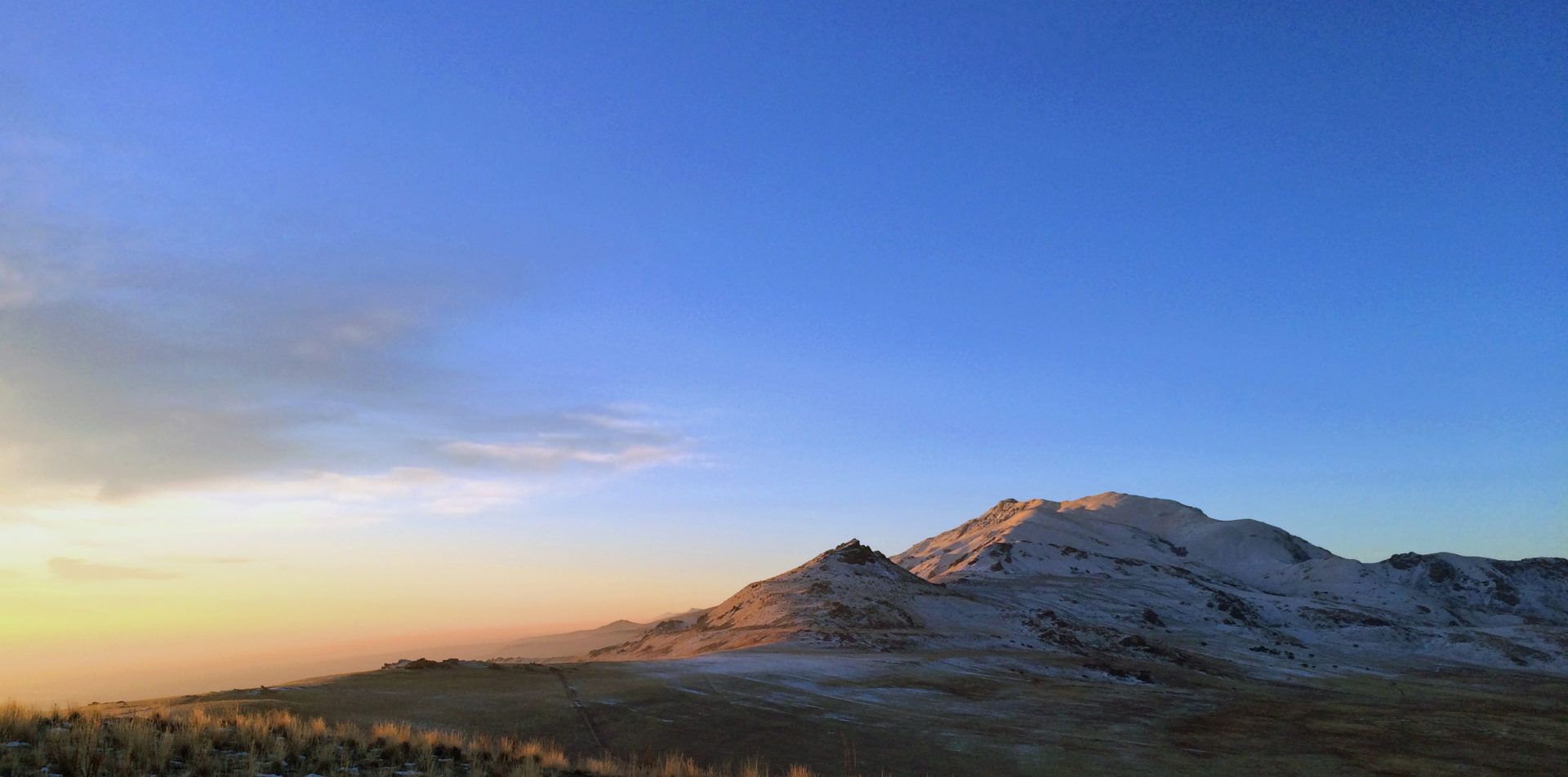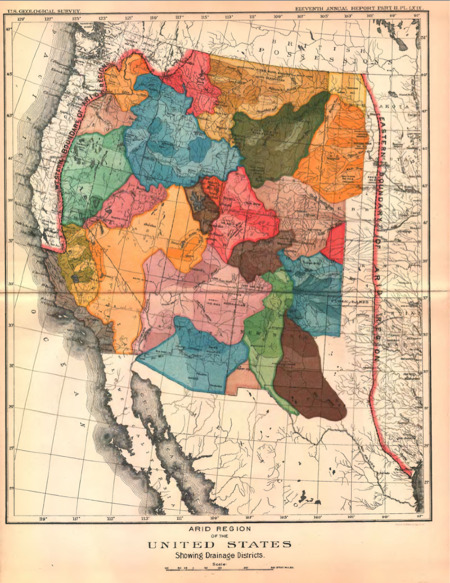Living Western History:
Periodic musings on Western history and its contemporary Implications
Today’s topic:
Water in the West
Remember back in 1820 when Stephen long dubbed the Great Plains of Nebraska and Oklahoma the “Great American Desert”? What a jerk. Ok…I’ll be the first to admit that it can be a bit dry out there – but no need to get nasty and start throwing the “Desert” word around. It is a fact though, aridity is a feature that much of the West holds in common. There are pockets – like my verdant native NW Washington – that don’t fit the mold, but most of the West could use a bit more water. Or, more carefully stated, could use more water with a more even season distribution.
I spent the last two summers living in Kearney, NE – west of the 100th meridian aridity line, and much drier than the previous 7 years in Lincoln, NE – in the midst of one of the worst droughts in decades. So, water (or the lack thereof) has been on my mind. Thinking about that, I assigned some books on water to my graduate students, had undergrads consider a so-so documentary (narrated by Dr. Quinn Medicine Woman), and have posted occasionally on facebook about water issues. As silly as it sounds, as I spent most late-afternoons in summer 2012 at the pool with my kids, I found myself thinking, “Ah. This water is great. That reminds me, I wonder how the drought is going…has Lake Powell dropped anymore this summer? Has the Colorado run dry yet? How is the Ogallala aquifer doing? I wonder how many feet down it is here in Kearney. Has it dropped in the past few years?” and so forth. Thus, thoughts about my studies in Western water issues regularly crossed my mind as I escaped the summer heat in the lukewarm chlorinated H20. At the same time, report after report comes forth concerning droughts, unsustainable water management practices, aquifers draining, etc… Even my parents – in lush green and verdant NW Washington – are being asked to limit their water usage by the local utilities. I don’t care where you stand on climate change or other environmental issues. You cant’ deny that water is drying up as it evaporates around you. Well, you could deny it, but then you’d die of eventual thirst. This must be recognized by Westerners as one of the most pressing issues for maintaining their regional prosperity. It would be less sad if it was an unforeseen development that took us completely by surprise. But, that isn’t the case. Many of the water-related crises we face now should have and could have been prevented.
Think about our favorite one-armed civil war veteran John Wesley Powell rafting down the mighty Colorado River back in 1869 (note: this was before it was dammed, and a bit more mighty – not the trickle that doesn’t even reach the ocean anymore…sorry Sonora). When he penned his 1876 Report on the Arid Regions of the United States he tried to explain to Easterners that the West was different. You couldn’t just draw nice box-shaped territories and states and expect the environmental politics to work.
He suggested that boundaries be configured along watersheds.
Why? Because it made for a prettier map? No. Because water management would be the defining feature of building sustaining growth and development in those regions. Well, that would have maybe helped the current multi-state legal wrangling over water in the SW and Great Plains. Arguments made a generation ago by desert dwelling (and very amusing) curmudgeons like Ed Abbey and others could have been passed off then as primarily philosophical or aesthetic in nature – neither of which are good ways to gain political traction in enacting reform. Those same arguments today, however, appear far more pressing. Their ramifications have quickly moved away from the philosophical to the pragmatic, economic and political. Life, it turns out, can’t exist without water. And, the prospect of it running out is getting peoples’ attention. Too bad public discourse hasn’t dealt with it more vigorously in the 50 years leading up to this point.
In any case – it is a subject I highly suggest we all read up on. Here are some recent news items that might get help you wrap your mind around the subject. If you have suggestions for other, drop them in a comment and I’ll add them to the list.
- (added 20 August 2013) http://www.usatoday.com/story/news/nation/2013/08/17/study-colorado-river-drought-will-cut-flow-from-lake-powell/2667677/
- www.npr.org/2013/06/15/192034094/rivers-run-through-controversies-over-who-owns-the-water
- http://www.nytimes.com/2013/08/12/us/to-save-water-parched-southwest-cities-ask-homeowners-to-lose-their-lawns.html
- http://blogwest.org/2013/04/22/what-can-las-vegas-teach-us-about-sustainability/
- https://www.hcn.org/blogs/goat/massive-california-water-transfer-to-continue
- netnebraska.org/article/news/farmers-and-communities-confront-challenges-drying-aquifer
- http://thinkprogress.org/climate/2013/08/12/2439931/reservoir-billboards-southwest/
- http://www.hcn.org/issues/45.12/a-new-report-says-were-draining-our-aquifers-faster-than-ever
Here are some more lengthy readings. They are not all of equal value and range from the academic and historical to popular and activist – but should all spark important debates. In addition to these, many of which are broad, countless local/regional/water-project specific studies exist as well. Look up where you live, and chances are, someone has done work on water issues relevant to your region! Environmental history IS NOT my primary field of training, so I actively request suggestions for titles to add to the list in a comment, and I’ll add it to the main post.
Relevant Readings
Thanks to Jason Heppler, Dave Nesheim, Sterling Evans, Adam Hodge, Tim Bowman and others for their suggestions added to this list via a facebook post
- Farmer, Jared. Glen Canyon Dammed: Inventing Lake Powell and the Canyon Country. Tucson: University of Arizona Press, 1999.
- Fiege, Mark. Irrigated Eden: The Making of an Agricultural Landscape in the American West. Seattle: University of Washington Press, 1999.
- Hundley, Norris. The Great Thirst: Californians and Water, 1770s-1990s. Berkeley: University of California Press, 1992.
- Hundley, Norris, and Colorado River Commission. Water and the West: The Colorado River Compact and the Politics of Water in the American West. Berkeley: University of California Press, 2009.
- Kromm, David E, and Stephen E White. Groundwater Exploitation in the High Plains. Lawrence, Kansas: University Press of Kansas, 1992.
- Limerick, Patricia Nelson. A Ditch in Time: The City, the West, and Water. Golden, Colo.: Fulcrum Pub., 2012.
- Loeffler, Jack and Celestia Loeffler, Thinking Like a Watershed: Voices from the West. Albuquerque: University of New Mexico Press, 2012.
- Logan, Michael F. The Lessening Stream: An Environmental History of the Santa Cruz River. Tucson: University of Arizona Press, 2002.
- Miller, Char. Water in the 21st-century West: a High Country News Reader. Corvallis: Oregon State University Press, 2009.
- Opie, John. Ogallala: Water for a Dry Land. Lincoln: University of Nebraska Press, 1993.
- Pisani, Donald J. To Reclaim a Divided West: Water, Law, and Public Policy, 1848-1902. Albuquerque: University of New Mexico Press, 1992.
- ———. Water and American Government: The Reclamation Bureau, National Water Policy, and the West, 1902-1935. Berkeley: University of California Press, 2002.
- ———. Water, Land, and Law in the West: The Limits of Public Policy, 1850-1920. Lawrence: University Press of Kansas, 1996.
- Phillips, Fred M, and G. Emlen Hall. Reining in the Rio Grande: People, Land, and Water. Albuquerque: University of New Mexico Press, 2011.
- Powell, James Lawrence. Dead Pool: Lake Powell, Global Warming, and the Future of Water in the West. 1st ed. University of California Press, 2011.
- Powell, John Wesley. The Arid Lands. Lincoln: University of Nebraska Press, 2004.
- Reisner, Marc. Cadillac Desert: The American West and Its Disappearing Water. New York, N.Y. : Penguin Books, 1993.
- Righter, Robert W. The Battle over Hetch Hetchy: America’s Most Controversial Dam and the Birth of Modern Environmentalism. New York: Oxford University Press, 2005.
- Schorr, David. The Colorado Doctrine: Water Rights, Corporations, and Distributive Justice on the American Frontier. New Haven: Yale University Press, 2012.
- Smith, Sherry L. “The Future of the Southern Plains.” University of Oklahoma Press in cooperation with the William P. Clements Center for Southwest Studies, Southern Methodist University, 2003.
- Stegner, Wallace. Beyond the Hundredth Meridian: John Wesley Powell and the Second Opening of the West. New York: Penguin Books, 1992.
- Walton, John. Western Times and Water Wars: State, Culture, and Rebellion in California. Berkeley: Univ Of California Press, 1993.
- Ward, Evan R. Border Oasis: Water and the Political Ecology of the Colorado River Delta, 1940-1975. Tucson: University of Arizona Press, 2003.
- White, Richard. The Organic Machine the Remaking of the Columbia River. New York: Hill and Wang, 1996.
- Wilkinson, Charles F. Crossing the Next Meridian: Land, Water, and the Future of the West. Washington, D.C.: Island Press, 1992.
- Worster, Donald. Rivers of Empire: Water, Aridity, and the Growth of the American West. Oxford, England; New York: Oxford University, 1992.
Others Possibly Worth Digging Through
If you think one of these deserves being bumped to the first list, make your case in a comment
- Arax, Mark. The King of California: And the Making of a Secret American Empire. New York; Oxford: PublicAffairs ; Oxford Publicity Partnership, 2005.
- Bormann, F. Herbert, and Gordon T Geballe. Redesigning the American Lawn: a Search for Environmental Harmony. New Haven: Yale University Press, 2001.
- Davis, Wade. River Notes: a Natural and Human History of the Colorado. Washington: Island Press, 2013.
- Glennon, Robert. Unquenchable: America’s Water Crisis and What to Do About It. Washington: Island Press, 2010.
- Grace, Stephen. Dam Nation: How Water Shaped the West and Will Determine Its Future. Guilford, Conn.: Globe Pequot Press, 2012.
- McCool, Daniel. River Republic: The Fall and Rise of America’s Rivers. New York: Columbia University Press, 2012.
- Pearce, Fred. When the Rivers Run Dry Water: The Defining Crisis of the Twenty-fist Century. Boston: Beacon Press, 2006.
- ———. Under Western Skies: Nature and History in the American West. New York: Oxford University Press, 1994.


Elaine Nelson, from over at BlogWest.org (check them out!) suggests Loeffler, Jack and Celestia Loeffler, Thinking Like a Watershed: Voices from the West. Albuquerque: University of New Mexico Press, 2012.